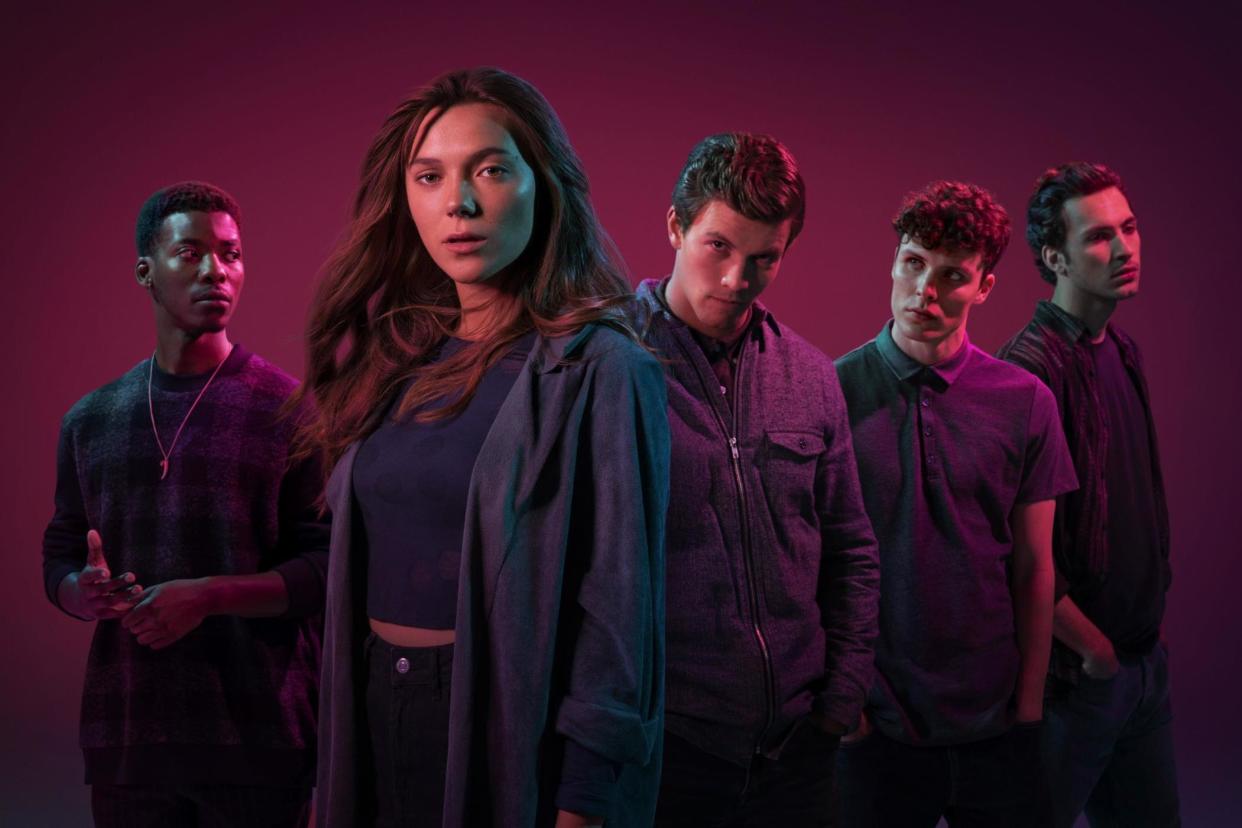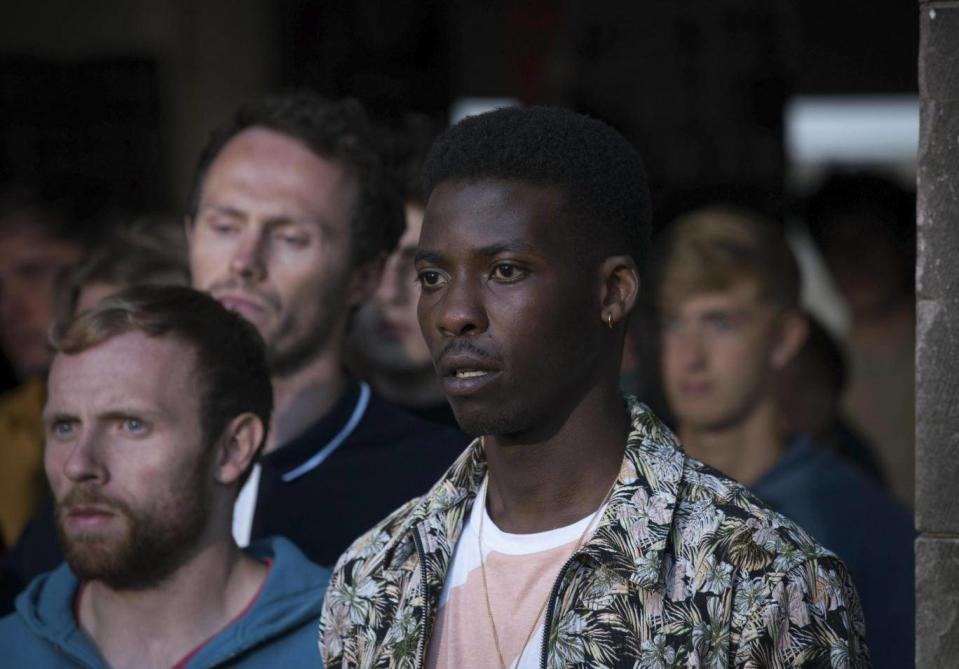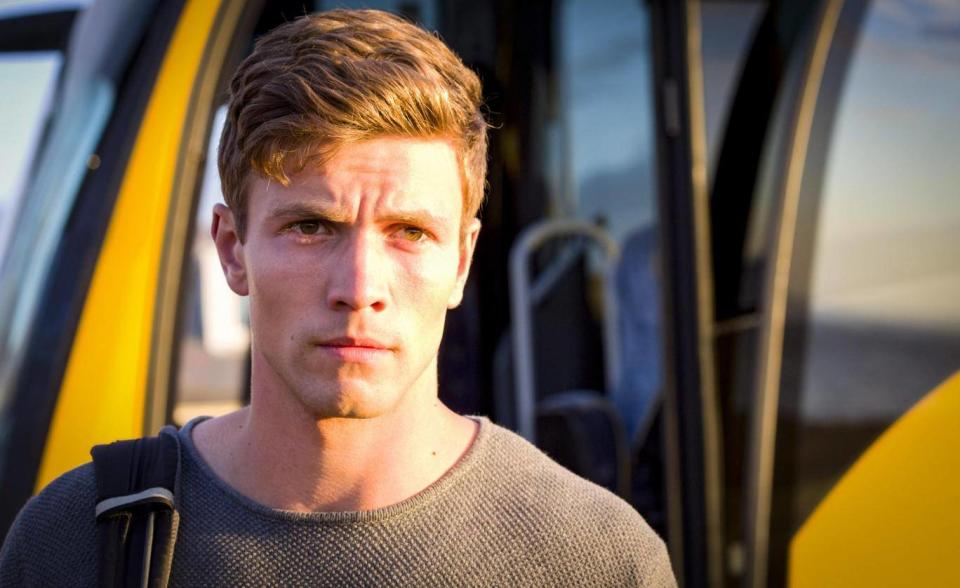How anti-feminist activism made its way onto TV in 2018: Interview with Clique writer Jess Brittain

It has been a strange year for women’s rights. Though #MeToo saw the unravelling of some of the most prominent careers in Hollywood, the journey towards ending sexual violence has hit some speed bumps. In the UK, a survey found that most people don’t know what constitutes sexual assault, while a woman’s lace thong was considered as evidence against her in a recent rape trial. These are just some symptoms of a culture in which rape victims, the majority of whom are women, are not believed and subsequently fear coming forward.
It’s timely, then, to see a hyperbolic version of this trajectory unfold on screen, which is what writer Jess Brittain has done with the second series of Clique, the smart BBC3 thriller exploring a world in which men are fed up with being portrayed as “the victim”. Instead of embracing feminism, they view it as an extremist movement, and vehemently reject it. Needless to say, this framework is unsettling and, at times, verges on dystopian: “It’s a heightened version of reality,” as Brittain puts it.
In Clique, which concludes today, we see a university student named Rayna publicly vilified for accusing her peer, the son of a politician, of rape. She is doubted by everyone, even her closest female allies, and is ostracised as a result. As the characters desperately try to puzzle out what happened to Rayna, conflicting narratives and plot twists emerge. The result is a powerful piece of drama that captures the nuance of making an accurate judgement in rape trials.

The most valuable thing about Clique, though, is not its gripping storyline, which becomes so complex by the end that you feel like you’ve just taken a trigonometry exam, but how provocative its societal tensions are. As Rayna’s credibility drops, far-right activism rises. This is thanks to a website named Twitcher, which was set up by a group of charismatic and attractive young men who use Rayna’s claim as propaganda to promote their own misogynistic agenda.
Twitcher seduces its young, male audience by framing itself as a renegade organisation. The people who work there, most of whom are students, troll female politicians online, satirise liberal views with viral videos and hijack feminist marches. Articles on Twitcher’s website include “The truth behind public service media” and “Why the patriarchy really doesn’t exist”.

Twitcher’s aggression culminates with a “March for Men” in the final episode, where phrases like “She could ruin your life too” and “Stop the liars” are splashed across placards with Rayna’s face on them. This is the last straw for Aubrey, the only black man working for Twitcher, who confesses that they probably only kept him around because it “prevents them from looking like Nazis”.
The values Twitcher espouses might seem extreme, but are not too dissimilar from the agendas of men’s rights activists and incels, who have been galvanised by the #MeToo movement. However, creating a show with real-life influences was never Brittain’s intention. In fact, she started writing Clique before #MeToo took off.
In fact, you only have to look back to last July, when the sexual assault allegations made against US Supreme Court nominee Brett Kavanaugh prompted President Trump to declare it “a very scary time for young men in America”. Or you could look to the recent rise of “consent videos”, which see men asking women to record their verbal agreement before having sex.
“I think in the UK we look to the US and see misogynist, often right-wing, panic becoming more mainstream, and we feel an immense amount of anxiety about that,” Brittain adds. “That anxiety plays a large role in the series.”
While Brittain stresses that #MeToo is something she “fully supports”, she explains how, as a writer, it became crucial to examine the backlash that has emerged in recent months.
“I’m fascinated by how polarising it has proven to be and the possible reasons behind that,” she says. “What makes men, and some women, question or doubt the account of assault survivors?”
At times, Brittain’s script encourages the viewer to doubt Rayna, too. Her testimony changes about what happened on the night she claims she was raped, and her flirtatious and wily character undermines stereotypical understandings of how a rape victim should behave, as Brittain explains.

“In order to explore how assault survivors are picked apart and used, and often subjected to a trial by public opinion, I wanted to depict a real and complex character that could make the characters, and the audience, doubt themselves.
“I think a lot of women believe that to question these kind of areas is to risk somehow jeopardising the feminist movement,” she adds.
“Clique is about my confusion and anxiety – not my decidedness. But if the show provokes a conversation between friends that they might have been worried to have, then I think that’s a good thing.”
Watch Clique series two on BBC iPlayer here


